The wein.plus television programme in August 2024: Our TV tips with all series and feature films, consumer programmes, documentaries, travel reports and reports on wine, winegrowers and viticulture.
SR Television, 5.25 a.m.
The wine of the Dreiländerecke is "the only Saarland wine" in 1962. The newly established wine festival in Perl provided a festive atmosphere and enjoyment with a parade, wine tasting in the wine cellar and a fairground.
3sat, 11.45 a.m.
In the south-west of Styria lies a region that is often overlooked. Both the Soboth and the Weinebene are pass landscapes. How and what do the people in this area do for a living? The film team visits the idyllic village of Soboth. The documentary paints an authentic picture of a hidden land that the people cultivate with great love for their homeland.
Das Erste (ARD), 2.03 pm
Thomas Stickler (Harald Krassnitzer) is very hopeful that Andrea will decide to run for mayor after all. So far, Georg Plattner is the only candidate and is already advertising with posters and election gifts. It is only after another confrontation with Georg that Andrea decides to run against him. The family hurries to drum up a support committee and Thomas is put in charge of the election campaign. At the same time, a large-scale spraying campaign against the increasing plague of mosquitoes is launched in Rust and the surrounding area. Thomas is the only winegrower not to have been informed. When spraying vehicles suddenly appear unannounced in his vineyards, he turns to Dr Karin Schwarz, head of a biological research centre, who is responsible. Her assurance that the active ingredient used is harmless does not convince Thomas. Furious, he refuses Dr Schwarz and her staff access to his vineyards.
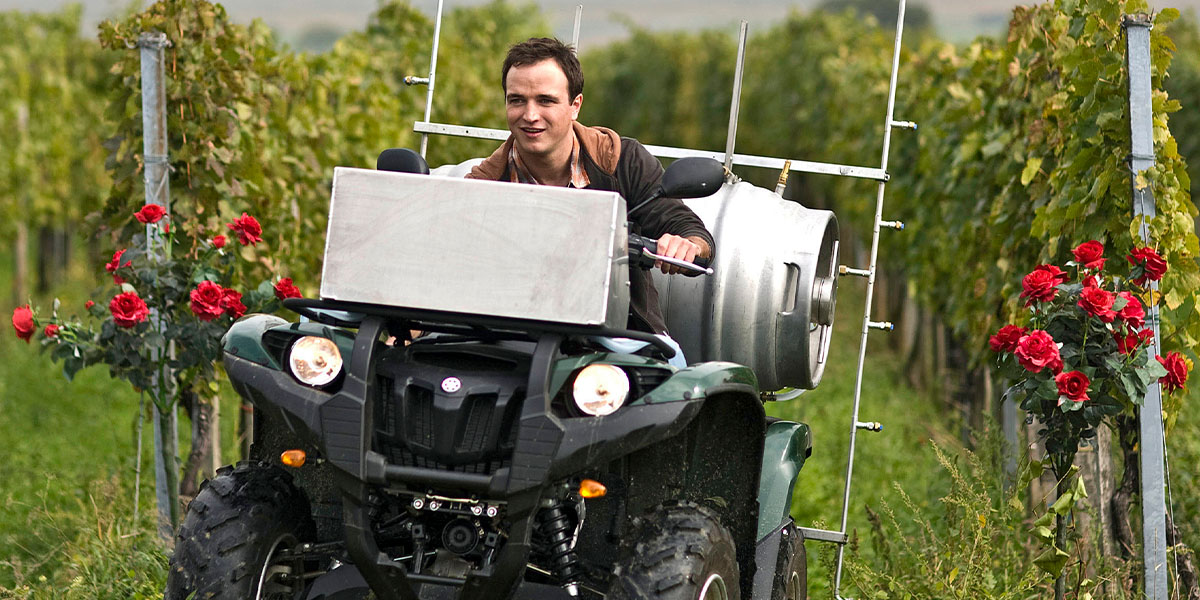 |
Das Erste (ARD), 2.45 pm
Election campaign in Rust: Thomas Stickler's sister Andrea Plattner is running against her ex-husband Georg for the office of mayor. However, the popular but politically inexperienced pharmacist refuses her brother's help: she prefers to rely on the advice of smart spin doctor Felix Felsner. Biologist Karin Schwarz, on the other hand, heavily criticised by Thomas for her methods against mosquitoes, suddenly takes an interest in his work and helps with the grape harvest. When she discovers a dangerous pest and has a biological remedy at hand, Thomas is not only impressed by Karin's expertise - the two also become closer on a personal level.
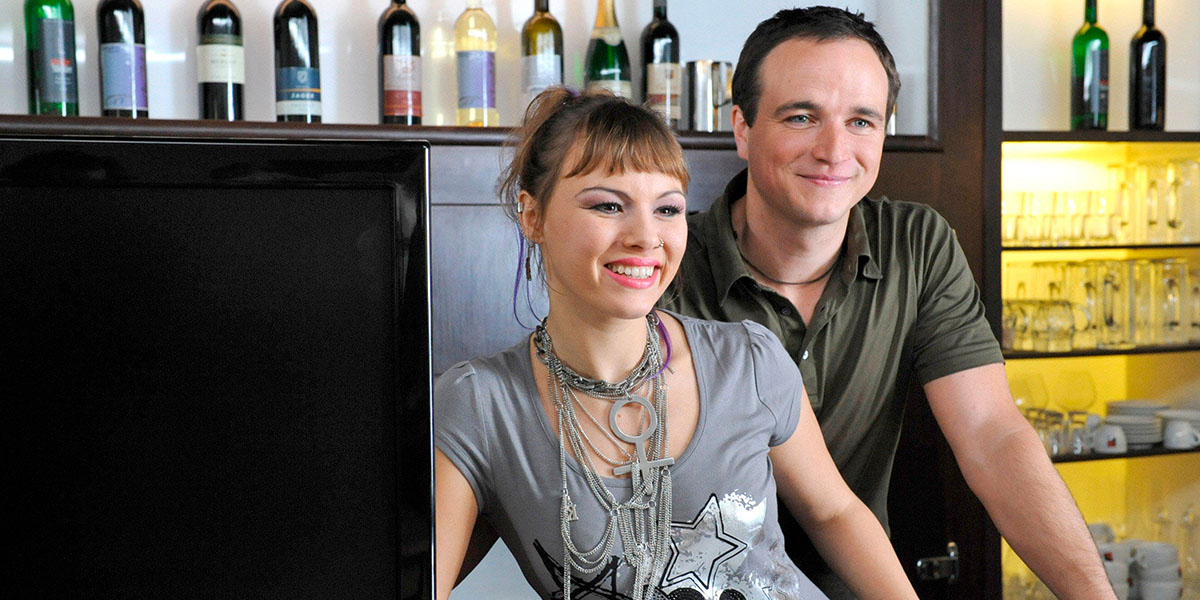 |
3sat, 4.25 pm
The historic "Goldenpass Belle Époque", a replica of the Golden Mountain Pullman Express of the 1930s, is a train in a class of its own. It offers nostalgia, luxury and adventure all in one. Twice a day, it travels from the palm-fringed shore in Montreux to Zweisimmen in the Bernese Oberland. It winds its way through the vineyards of picturesque Lavaux and passes the historic workshops of the Montreux-Bernese Oberland Railway in Chernex.
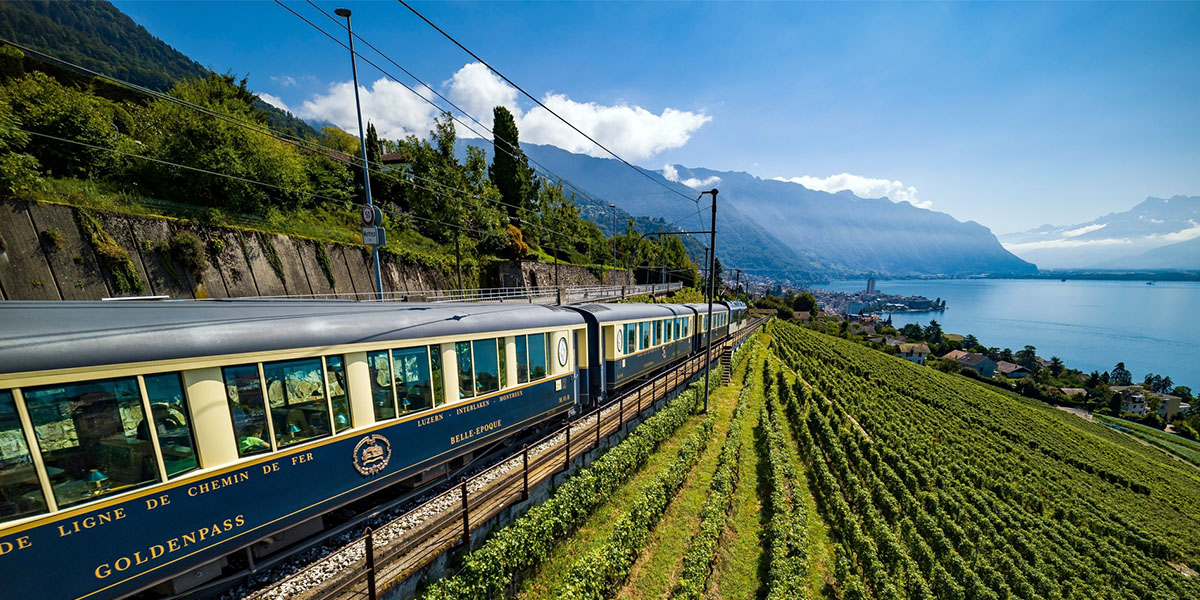 |
3sat, 18.10 hrs
The Jura-Südfuss line is one of the most beautiful railway lines in Switzerland. Along the French and German language border, the journey follows the western shore of the picturesque Lac Léman to Geneva. Heading south, the train winds its way through the Fribourg region. After the tunnel at Puidoux, train travellers are treated to a magical sight: The vineyards of Lavaux in the foreground, Lake Geneva shimmering blue behind, and the snow-covered slopes of Mont Blanc in the distance. The Lavaux vineyard terraces have been a UNESCO World Heritage Site since 2007. Christelle Conne's family has been running a vineyard there for generations and allows the film team a look behind the scenes.
ARD-alpha, 8.15 pm
There are around 17,000 olive trees on the island, the most northerly in the whole of Italy. This is due to the particularly mild microclimate of the lake at the foothills of the Alps. It also favours winegrowing on the southern shore. Franciacorta sparkling wine, which was first produced here in the 1960s, is now recognised worldwide.
WDR television, 8.15 pm
Presenter Janine Breuer-Kolo gives an entertaining tour of regional and international delicacies in this live programme. In addition to excursions to the wine-growing region in the Dutch border region and to truffle dogs, she finds out whether beginners can make a real gourmet dish.
hr television, 4.45 pm
It is one of the big events in Hesse every year: "Rhine in Flames". Thousands of visitors enjoy the giant fireworks display over the Rhine from ships and romantic spots in the vineyards. Those who also want to experience a culinary highlight are well advised to take a seat at the table of the Assmannshäuser Kräuterwirte. The chefs of the "Alte Bauernschänke", the "Gasthof Schuster" and the "Hotel Zwei Mohren" conjure up menus with typical herbs from the Rheingau between the vines high above the Rhine. This results in delicious herb soups, juicy steaks with herb sauce, herb bread, herb lemonades and a rhubarb dessert with nettle marzipan.
3sat, 7.40 pm
Saint-Emilion is one of the most romantic wine villages in the world. The town lies on a limestone plateau, surrounded by vineyards on which the grapes of the "Grands Crus" grow. Over the centuries, a symbiosis of nature and man has developed in Saint-Emilion. It was the Romans who planted their first vines in this area in the 5th century and thus began to cultivate an extraordinary landscape. The Benedictine monk Emilion is associated with the creation of the village in the 8th century. He found a spring in a grotto beneath the rocky plateau, which he developed into the Hermitage. Emilion began to preach. Legends of his ability to heal and perform miracles quickly spread. More and more people made pilgrimages to his hermitage and settled there. St Emilion was administered by a chapter of the order and a secular authority of the Jurade. In 1199, John Ohneland, King of England and Duke of Aquitaine, granted the inhabitants communal rights with all privileges and freedoms. The "Jurade", once a secular government, is still active after more than 800 years, but today its only interest is wine. In September each year, the grape harvest is announced in a colourful spectacle by the "Jurats". Merlot, Cabernet Franc and Cabernet Sauvignon are cultivated on 5400 hectares of vineyards in the "Saint-Emilion" appellation and the "grand cru" appellation.
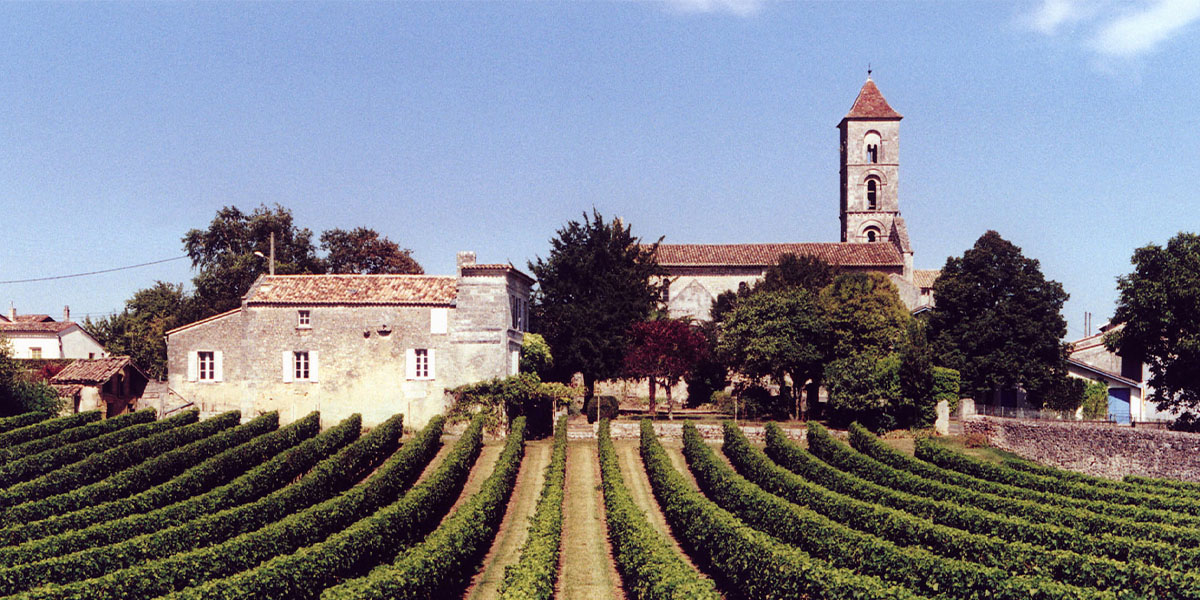 |
3sat, 1.15 pm
When travelling to South Africa, Cape Town is a must - for many, it is the most beautiful city in the world and the starting point of this journey. The breathtaking landscape, the mix of cultures and the relaxed lifestyle make up the special atmosphere of the city on Table Mountain. In the east of Cape Town, good wines grow against a breathtaking backdrop. A visit to the winegrowers and their wineries is well worthwhile.
Das Erste (ARD), 2.03 pm
Thomas and his family support Andrea in the election finale for mayor. They canvass for every vote, while her opponent Georg Plattner appears confident of victory. The surprise is all the greater when Andrea wins the election. The Sticklers cheer enthusiastically. And an emotional knockout for Georg Plattner. However, the election result also has an impact on his wife Hedwig: she will probably no longer work as a secretary under the new mayor. Thomas and biologist Karin take their time to deepen their still tentative relationship, as they both look back on painful experiences. They discover 16-year-old Ines Nowak in the old wine cellar and learn that she has run away from a youth hostel. On the initiative of Thomas and Andrea, she is able to stay at Rust and help Kerstin renovate the inn, which is due to reopen soon. Only the search for a cook proves difficult - Paul, who is prone to jealousy, also has to give his consent. At the Plattner house, Hedwig's collar is bursting because Georg is wallowing in self-pity. And because he once again blames Thomas Stickler for his misery. Meanwhile, Thomas' ex-wife Johanna and wine merchant Martin Strasser return from their sailing trip as a newly married couple and plan their future together at Rust. The rapprochement between Thomas and Karin, on the other hand, is more complicated: Karin feels attracted to Thomas, but is afraid of getting too close.
Das Erste (ARD), 2.45 pm
A horse-riding trip together cements the young relationship between winemaker Thomas Stickler and biologist Karin Schwarz. Karin is also welcomed with open arms by Hedwig and Gottfried. At the same time, Paul, with the help of his grandfather Blasius, is able to complete his first grape harvest as an independent winegrower. And his girlfriend Kerstin, with the support of trainee Ines and the whole family, manages to successfully reopen the inn. Thomas' sister Andrea, who has just been elected mayor of Rust, wants to get rid of the unruly municipal secretary Hedwig. When Andrea offers her the position of director of the town archives, Hedwig is pleasantly surprised. She recognises this as a financial and social advancement. However, her husband and election loser Georg Plattner only sees further evidence of the Sticklers' intrigues. He wants to stir up the local councillors against Andrea, but Thomas puts him under pressure with the black book and demands that he resign from all political offices in the community. This is the last straw: In a fit of rage, Georg attacks Thomas' wine barrels and himself with an axe. Thomas manages to restrain him until the police arrive. Meanwhile, biologist Karin receives a surprise offer to take over the management of a long-awaited project in Africa. She agrees, even though it is difficult for her to part from Thomas. Thomas is very disappointed. However, in a conversation with his ex-wife Johanna, he realises that he doesn't want to lose Karin so easily.
3sat, 8.15 pm
The first part of the route leads through vineyards and the wild Pfyn-Finges Nature Park, where organic winegrower Felicitas Mathier cultivates her vineyard in a natural way. On the left-hand side of the mountain, the route climbs up to the tranquil mountain village of Chandolin, the home of Christelle's partner Sébatien Bonnard. The bus driver takes tourists through his village in his vintage Postbus and lets them taste the glacier wine, which is unique in the Val d'Anniviers.
rbb television, 8.15 pm
Saale-Unstrut is the name of Europe's northernmost wine-growing region. Here Daniel Aßmann learns a lot from the former German wine princess and current winemaker Sandra Polanski. You will visit one of the oldest sparkling wine cellars in the country and hike from Naumburg's Blütengrund through the vineyards to the almost 1,000-year-old Neuenburg Castle, which towers high above Freyburg.
SWR Television, 11.20 a.m.
The Moselle is one of the most beautiful river landscapes in Germany. Coming from France, "La Moselle" winds its way past Trier to Koblenz. The railway line is about twice as long as the crow flies. Steep vineyards are cultivated with the help of rack railways. Watch a winegrower at work - and take a "rollercoaster" ride.
WDR Television, 6.15 pm
The Palatinate lures with flavours and nature - and thus casts a spell over Björn Freitag and Tamina Kullert. The pair set up base camp for their boundless trip in Neustadt an der Weinstraße. Together with colleague Susanne Nett, known as "Die Rezeptsucherin" from SWR, they track down the wine and its history as well as Palatinate specialities. In Neustadt, characterised by half-timbered houses, they discover the "Path of Wine Legends" as well as the Elwedritsche Fountain with its Palatinate mythical creatures. Afterwards, the three of them plunge into the hustle and bustle of the German Grape Harvest Festival and enjoy wine spritzers, "Woiknorze" with home-made meat and steamed dumplings. Tamina Kallert is on the trail of two world records in Bad Dürkheim - including the largest wine barrel in the world. Björn Freitag cooks Saumagen in Wachenheim an der Weinstraße with restaurateur and butcher Klaus Hambel, known to many as the "Saumagen Pope". At the winery of sisters Dorothee and Karoline Gaul, Tamina Kallert and Björn Freitag learn how fermentation control works. Naturally, the two of them lend a hand. Afterwards, things also get crafty: Tamina learns how to make different varieties of genuine Palatinate mustard with mustard maker Yvonne Ortloff.
3sat, 10.00 a.m.
Around 100,000 apricot trees characterise the cultural landscape of the Austrian World Heritage Site Wachau - not only during the apricot blossom season in April, which always attracts tens of thousands of visitors. The documentary paints a portrait of these "precocious fruits". Apricots", as they are known outside of Austria, Bavaria and South Tyrol, are derived from the Latin "praecos", which means "precocious". The fruit is a trademark for the region and the name "Wachau apricot" is a designation of origin protected by the European Union. It may only be used for apricots that come from a defined growing area on both sides of the Danube.
3sat, 10.10 a.m.
The magic of the Wachau remains unbroken. Countless day trippers come there by boat, car or bike to enjoy the cultural landscape and wine culture along the winding Danube. The film tells the story of this region, which was not discovered as a tourist destination by the nobility or the imperial family in the 19th century, but by artists who were actively supported by Archduke Franz Ferdinand in the planning of the Wachau railway. The idyllic Wachau with its vineyards and apricot gardens was ideal for Austria's new self-image after the war, as can be seen in the romantic Wachau films of the time such as "Mariandl" and "Hofrat Geiger".
3sat, 11.00 a.m.
It is one of nature's most beautiful spectacles when the apricot trees begin to blossom in the Wachau in spring, transforming the entire region into a sea of fragrant flowers. At 36 kilometres, the Wachau is only a short section of the 2800-kilometre-long Danube - and is a UNESCO World Heritage Site. The documentary shows the charms of this Austrian cultural and natural landscape through the changing seasons. The winding Danube valley, the alluvial forests, rock formations and the man-made vineyard terraces are UNESCO natural monuments. The Wachau is also famous for its idyllic villages, monasteries and castles. The Wachau has been a wine-growing region since Roman times - today the "Land am Strome" can compete with any wine-growing region in the world with its white wines.
3sat, 11.45 a.m.
From idyllic wine terraces, castles and ruins to Danube navigation - the Wachau is a distinctive cultural landscape with an eventful history. Karl Hohenlohe travels to the natural heritage region and sheds light on the many facets of the Wachau. At the shipping museum in Spitz, he explores the use of the Danube over the centuries and gains an insight into shipbuilding. In the Kellerschlössl of the Domäne Wachau in Dürnstein, he immerses himself in the history of Wachau wine and explores the extensive wine cellar. On a walk through the Wachau vineyards, Ulrike Danninger gives an insight into myths and legends as well as the more recent history of the region.
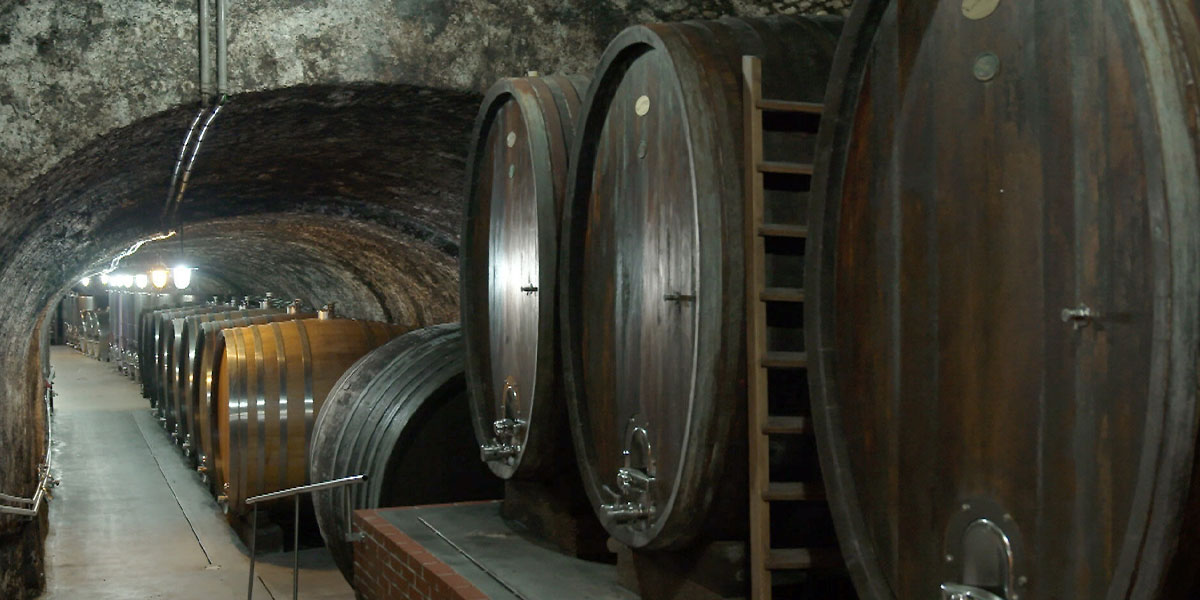 |
SWR Television, 6.15 pm
Sebastian Müller and his brothers grew up between copper and kettles. Their family has been building distilleries by hand for almost 100 years. In Tiergarten near Oberkirch, they produce distilleries for making brandies such as kirsch, gin and whiskey. In the Black Forest, copper has been moulded, hammered and welded by hand for four generations. They start with the kettle, the centrepiece of the distillery. They mould the oval container from copper. To do this, they compress, anneal and hammer four copper plates into a seamless and smooth egg. The still is then "married" to the water bath. The boiler, cap, column and cooler are the basic equipment of a distillery. Once all the elements have been manufactured, the fittings, sight glasses and safety valves are screwed together. All the components are assembled to create the system for distilling mashed fruit or macerated juniper berries and grain.
SWR Television, 20.15 hrs
Istria is like a photo and film set: hidden bays, wild mountains, picturesque coastal towns, rolling hills and the clear waters of the Adriatic all around. The documentary makes the magical landscape tangible with spectacular aerial shots. The people of the Croatian peninsula are also special: dolphin researchers, winegrowers and shepherds.
SWR Television, 5.20 a.m.
The Rheingau and its wine have often been sung about - and filmed almost as often. Despite all the idylls and clichés, time has not stood still in this region either.
3sat, 11.55 a.m.
The Southern Palatinate lies between the Rhine and the Palatinate Forest, in the south-eastern corner of Rhineland-Palatinate. Many sunny days and a mild climate allow wine, fruit and vegetables to grow.
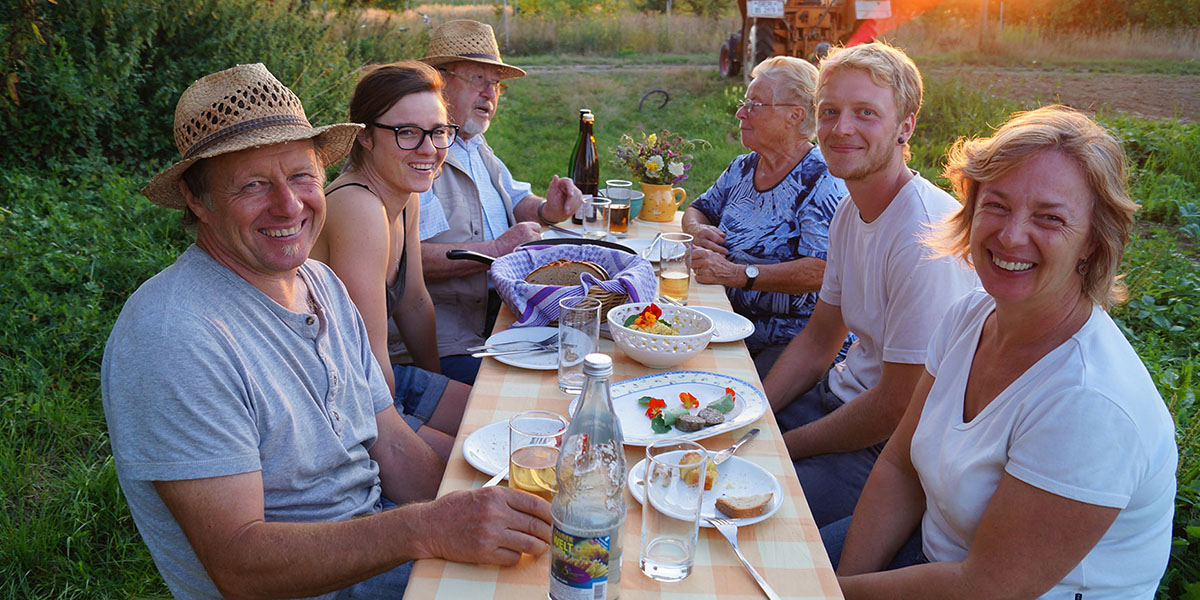 |
SWR Television, 8.15 pm
Simone Gutting did not want to become a winemaker. But when her sister married into another business, she quit her job and took over the management of the organic winery in Duttweiler from her parents in 2016. This was founded by her grandfather in 1954. Simone Gutting's organic wine estate is located in Duttweiler in the Palatinate near Neustadt an der Weinstraße. She cultivates 14 different grape varieties on almost 17 hectares of land. Simone describes herself as "Head of Desk" and her father as "Head of Wine". Her mother, one of the first female master winemakers in the Palatinate, also helps out on the farm. Simone's husband Michael, who used to work as a chemist, concentrates on the tasks in the wine press house.
arte, 8.10 a.m.
Anyone who drinks alcohol in public in Morocco must expect to be penalised. This makes it all the more astonishing that viticulture in the North African country has a centuries-old tradition: from the Romans to the arrival of Islam in the region to the French colonial rulers in the 20th century. The long history of Moroccan wine has accompanied that of the kingdom to this day.
3sat, 7.00 a.m.
The Pelješac peninsula is known for its distinctive wines such as Dingac and Postup.
3sat, 1.20 pm
Legendary smugglers' trails once led from the South Tyrolean Ahrntal to the Austrian Zillertal. There, innkeepers supplied themselves with cheap Italian wine, coffee and cigarettes.
WDR Television, 8.15 p.m.
In Valledoria, 80 kilometres west of Porto Cervo, there is a family of winegrowers who cultivate the Sardinian grape varieties Cannonau and Vermentino. The journey there offers a wonderful view of the Strait of Bonifacio.
arte, 1.25 pm
When the southern summer in Chile comes to an end in March, the grape harvest begins at the foot of the Andes. Within just a few years, Chilean wine has become the pride of the nation. Vineyards cover almost a third of the country, and the wine has rapidly begun its international triumphal march. But the wine also tells the story of a society marked by the ultra-liberalism of the Pinochet dictatorship, a society that is twofold: divided, but combative.
3sat, 4.10 pm
Croatia has experienced a boom in recent years: cosy bays, vineyards, large forests, lakes and buildings of cultural and historical value are responsible for this.
SR Television, 6.15 pm
Verona is one of the oldest and most beautiful cities in Italy - and today's destination for top chef Björn Freitag and "Wunderschön" presenter Tamina Kallert on their three-part culinary journey through northern Italy. In the second-largest metropolis in Veneto, it will once again be "Boundlessly delicious". Take risotto all'Amarone, for example, which is one of the most popular and typical dishes of Veronese cuisine. The risotto is prepared with ingredients that come exclusively from this region. Valpolicella wine from the wine-growing area north of Verona gives this dish an intense dark red colour.
3sat, 7.00 and 9.55 a.m.
This time Martin Traxl and Lojze Wieser explore the landscapes and cuisines of Bordeaux and the Gironde in their search for the "flavour of Europe". The culinary specialities and dishes "à la Bordelaise" are just as diverse as the region, which is characterised by its proximity to the Atlantic, with its breathtaking vineyards, castles and omnipresent French charm.
hr television, 8.15 pm
Twenty kilometres north of Niagara Falls, where the Niagara River flows into Lake Ontario, lies the Niagara wine region with the small historic village of Niagara-on-the-Lake. Time seems to stand still there. It is a region known for Canada's famous ice wine. The Iniskillin winery in the province of Ontario has won many awards for its wines.
SWR Television, 8.15 pm
A river trip on the Neckar. SWR presenter Annette Krause is travelling by canoe on one of Germany's most beautiful rivers. Between vineyards and beautiful half-timbered towns, she discovers different people and their stories. The many steep vineyard slopes along the banks of the river are scenically beautiful.
3sat, 5.35 a.m.
A tour of discoveries and surprises: Gourmets get their money's worth when tasting organic apple wine, Calvados and a rare pear sparkling wine.
3sat, 21.40 hrs
In the east, the grape harvest of the famous Georgian wines is in full swing. From there, the journey continues northwards: into the high mountains of the Greater Caucasus, through wild valleys to Georgia's most famous mountain, Mount Kazbek.
arte, 18.35 hrs
At Hohentwiel, a family of winegrowers offers regional delicacies as well as award-winning wines. They work together with a chef who supports the fishermen on Lake Constance. They don't have it easy, as fish stocks have been declining for years.
3sat, 21.40 hrs
Wine culture, hiking trails, an exciting history and a lively everyday culture: the Siebengebirge has a lot to offer. The film takes you from Drachenfels to Mannberg. The members of the Belz family have been growing wine as organic winegrowers on the steep slopes of the Mannberg near Unkel am Rhein since the 1990s. The small town also serves as a starting point for hiking tours and is also home to the Willy Brandt Forum. Other stops on the journey through the Siebengebirge include the wine-growing town of Bad Honnef-Rhöndorf, the residence of former Federal Chancellor Konrad Adenauer and a picturesque attraction for day trippers, as well as the Drachenfels.
3sat, 11.55 a.m.
At some point in Luxembourg, people stopped deciding between Germanic and Romansh. And you don't just notice this in the language, you can also taste it: Luxembourg crémant is made from Riesling and refined into crémant. Wainzossis, the sausages, are flavoured with wine here. Luxembourg combines both Germanic and Romanesque influences, and the people of Letzeburg are proud of this. The villages on the Moselle are close-knit, houses stand next to houses, winegrowers live next to winegrowers.
arte, 18.35 hrs
history. Around 3,600 years ago, a volcano exploded here and created a huge, water-filled crater surrounded by a group of islands - today's Santorini. Its beaches are mostly black, some red or white, and just as world-famous as the blue domed roofs of the houses or the wine. The film shows how the volcano's activity and deposits have shaped nature and all areas of life on the island to this day. The programme is also available in the arte.tv media library until 26 November 2024.
arte, 9.00 a.m.
France, the land of wine: hills full of vines characterise the landscape in many regions. But in some places, the cultivation methods have exhausted the vineyards, and time and again, even in traditional growing areas, the vines have to be uprooted. Some winegrowers are breaking completely new ground, they want to reorganise their production in order to counter the decline of wine culture - with unusual ideas, a sense of tradition and, above all, in harmony with nature. One person who is fighting the death of vineyards in France is the vine grower Lilian Bérillon. He owns a nursery in Villeneuve-lès-Avignon, a small municipality in the south of France. His profession is rather unknown, and yet it tips the scales when it comes to the survival and longevity of the plants: the quality of the vines he breeds determines the quality of the grapes that will later grow on them. "The situation is quite serious: vines used to be planted for 80 to 100 years, but today they only have a lifespan of 20 to 30 years - modern viticulture bears some of the responsibility for this," says Bérillon. He maintains close relationships with winegrowers and travels to vineyards across the country to develop customised solutions. The programme can be viewed in the media library on arte.tv until 29 September 2024.